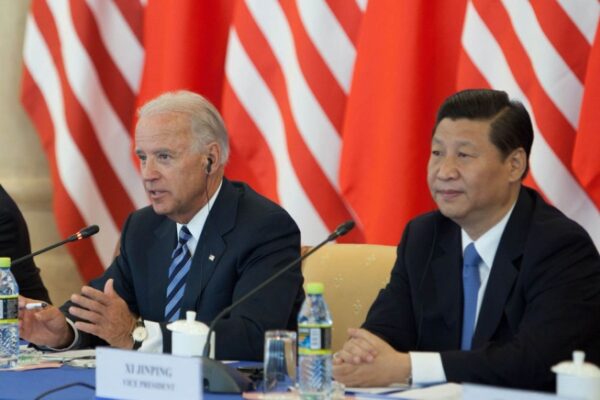Ties between the two largest economies have grown strained over the past few years, and now China appears to be targeting more American businesses. The communist leadership has begun using regulations and police forces to go after American firms looking to do business in the country.
Last week, The Wall Street Journal reported, “Chinese authorities questioned Shanghai workers at consulting firm Bain & Co., underlining the mounting uncertainties facing foreign executives and businesses operating in China after a series of detentions and investigations.
The Boston-based company said Wednesday U.S. time that it was cooperating with authorities and declined to comment further. Shanghai police didn’t immediately respond to a request for comment on the reason for the visit, earlier reported by the Financial Times, which also said police took away computers and phones.
The episode underscores the increasingly risky environment for businesses operating in the world’s second-largest economy amid worsening ties between Beijing and Washington. It also comes as China brings a potentially wider array of business activities under an expanded anti-espionage law that was updated this week.”
Sino-U.S. tensions are the biggest challenge for American businesses this year, according to a survey of foreign executives released Wednesday by the American Chamber of Commerce in China, with almost two-thirds of the more than 100 respondents ranking it their top concern. Almost nine out of 10 said they were pessimistic or slightly pessimistic about U.S.-China relations, the survey showed.
CNN noted that China’s leader Xi Jinping recently “hit out at the United States with unusually direct comments as he called on the country’s private companies to “fight” alongside the Communist Party at a time of mounting challenges at home and abroad.”
He told a group of business advisers, “[In the past five years,] Western countries led by the United States have contained and suppressed us in an all-round way, which has brought unprecedented severe challenges to our development….In the coming period, the risks and challenges we face will only increase and become more severe. Only when all of the people think in one place, work hard in one place … can we continue to win new battles.”
Semafor, a news site established in 2022 by Ben Smith, a former editor-in-chief of BuzzFeed News and media columnist at The New York Times, and Justin B. Smith, the former CEO of Bloomberg Media Group, has listed five other companies being targeted by the communist regime.
“Mintz Group
Beijing police in March unexpectedly raided and shut the offices of the due diligence firm, while also detaining five employees who were Chinese nationals.
Micron Technology
China’s internet regulator began investigating the Idaho-based chip manufacturer in March, citing national security concerns, but characterized the move as a “normal regulatory measure.” But Micron now faces an outright ban in China, prompting U.S. lawmakers to urge South Korea to not fill voids in China’s chip supply if the company is axed.
Deloitte
Chinese authorities shut down Deloitte’s Beijing operations for three months in March, accusing the accounting firm of “serious audit deficiencies” in its work with a state-owned asset management company.
The company was also slapped with a $30.8 million fine. Deloitte said it “regretted” that the Chinese government found its work “below standards,” but emphasized that it was not involved in any unethical business practices.
Raytheon Missiles and Defense and Lockheed Martin Corp.
The country’s Ministry of Commerce last week announced a set of sanctions against weapon manufacturers Raytheon and Lockheed over their sales to Taiwan.
Raytheon was awarded a $412 million contract last year to upgrade Taiwanese military radar as part of a $1.1 billion package of U.S. arms sales to the island.”
[Read More: Major Weight Loss Center Going Down]



